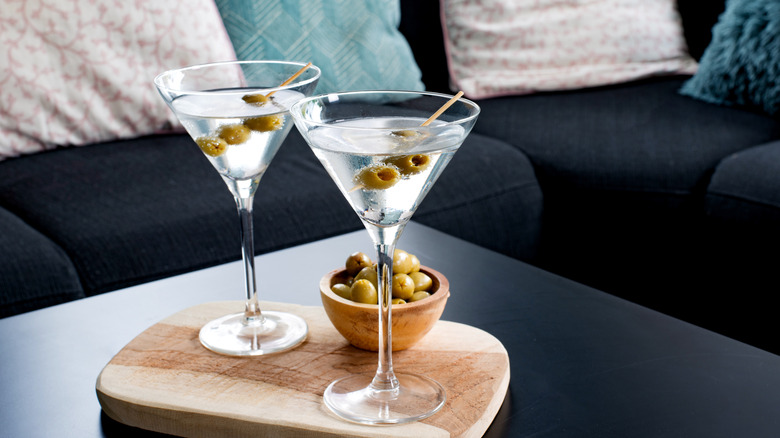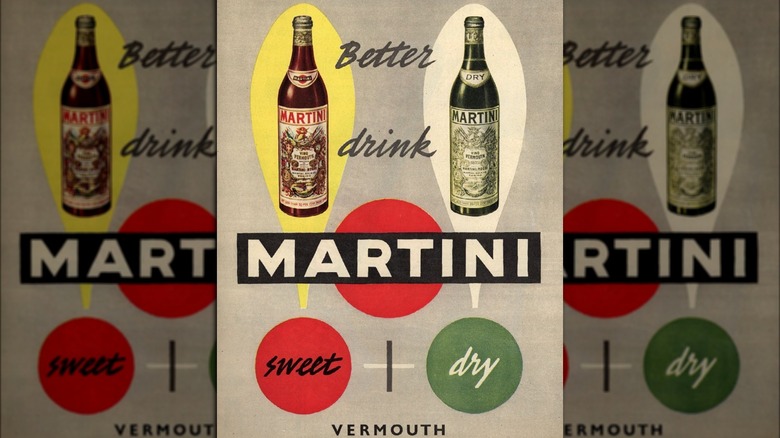The Real Difference Between Dry And Sweet Vermouth
Perhaps your version of a perfect martini is any version that is sitting directly in front of you after 5 o'clock, but it turns out there is actually a variation of a martini called the "perfect" martini that is made of equal parts dry and sweet vermouth. According to Thrillist, the drink also includes orange bitters and a lemon twist and altogether has a bolder flavor than a standard martini, due in part to the combination of vermouths. So, how do these vermouths differ?
Both types of vermouth are fortified wines (with a higher alcohol content than regular wine) that are flavored with herbs and spices. Dry, or white, vermouth, got its start in France in 1786 and is sometimes referred to as French Vermouth. It has less residual sugar than sweet vermouth and can have floral, herbal, and fruity elements in its flavor profile. Sweet, or red, vermouth, first showed up in Italy several years later, in 1813. It is (you guessed it) sweeter with more sugar than dry vermouth and exhibits notes like dark fruits, vanilla and caramel. But, enough background, already. How can we drink 'em?
Sweet or dry, how to get it in the glass
If you've seen "Groundhog Day," then you already know one way to order sweet vermouth is on the rocks with a twist (via YouTube). Both dry and sweet vermouth can be served as a standalone drink. According to Bon Appétit, it should be chilled, and remember to add that lemon or orange twist not just for flair, but to bring out the flavor. If you're offering some food (or asking your guests to bring some — hey, you got the vermouth!) the outlet recommends serving dry vermouths with funky cheeses and sweet vermouths with dry, salty cheeses.
If you have an impressive bar set up at home, you may already know how many of the classic cocktails call for vermouth. If you're well-stocked with sweet vermouth, whiskey, and bitters, you might try making a Manhattan. But if you have gin or vodka and dry vermouth, then a martini might be in order. If you have both (call us, first, and then) it might be time to make that perfect martini.

